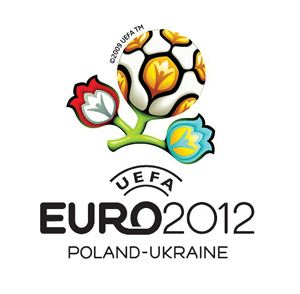Borys Kolesnikov: It is time to get scissors and a red ribbon…
Euro-2012 construction work is getting ever faster, but the state still has no follow-up plan for the newly-built infrastructure
Last Wednesday, accompanied by about 50 journalists, Ukraine’s Infrastructure Minister Borys Kolesnikov made a fast-track examination of the level of preparation of the four Ukrainian host-cities for the Euro-2012. In one day, the governmental and journalistic inspection visited Lviv, Donetsk, Kharkiv, and Kyiv. And, although it took more time to fly from city to city than to examine the newly-built facilities, the “inspectors” still managed to come up with some conclusions.
The Euro-2012 is precisely a year away. Getting ready for the tournament, the Ukrainian cities are embarking, one by one, on the home stretch. Although the fears that “we won’t manage to prepare in time for the soccer extravaganza” keep coming up from time to time, the number of skeptics is steadily diminishing. To get first-hand information about what is still to be done, a lot of foreign guests and inspections are visiting Ukraine. “The point is everybody wants to come here and see with their own eyes what the Ukrainians have already done for the championship and whether they are capable of fulfilling all that was planned,” says Hanna Oleksiuk, who is in charge of Euro-2012 preparations at the Lviv Oblast Administration.
It was the third fact-finding tour covering Ukraine, with the participation of Kolesnikov, over the past week. Last Monday saw the beginning of a five-day media inspection arranged by local organizing committees. An international journalist pool worked on June 7-8. “Those who visited Lviv last year can now see with their own eyes what huge leap Ukraine has taken in its preparation for the Euro-2012,” Kolesnikov’s spokesman Yurii Hromnytsky said.
As Hryhorii Surkis, President of the Ukrainian Soccer Federation, says, every day counts now. “Of course, there is a risk to fall behind schedule, for there is always a danger of letting up and slowing down,” he notes.
After examining the stadium construction and hearing the main subcontractor’s report, Kolesnikov said: “It is time to get scissors and a red ribbon.”
On the whole, according to Markian Lubkivsky, chair of the Euro-2012 Organizing Committee, there are no complaints today about the construction and reconstruction of championship facilities in Ukraine today. What still remains unclear is their utilization after Euro-2012. Ukraine has not yet decided what to do with the stadiums after the championship.
Therefore, Ukraine should spend the remaining time fulfilling the tasks connected with the operational and organizational support of Euro-2012, i.e. launching a vigorous advertising campaign and improving the law-and-order situation. It is also high time to think over what is to be done with the “track” that will stay behind after the train called Euro-2012 has passed. Incidentally, the state has allotted billions of hryvnias from its coffers to help build the infrastructure, so the Ukrainians would like to see when and how this money will make its way back to the budget.






